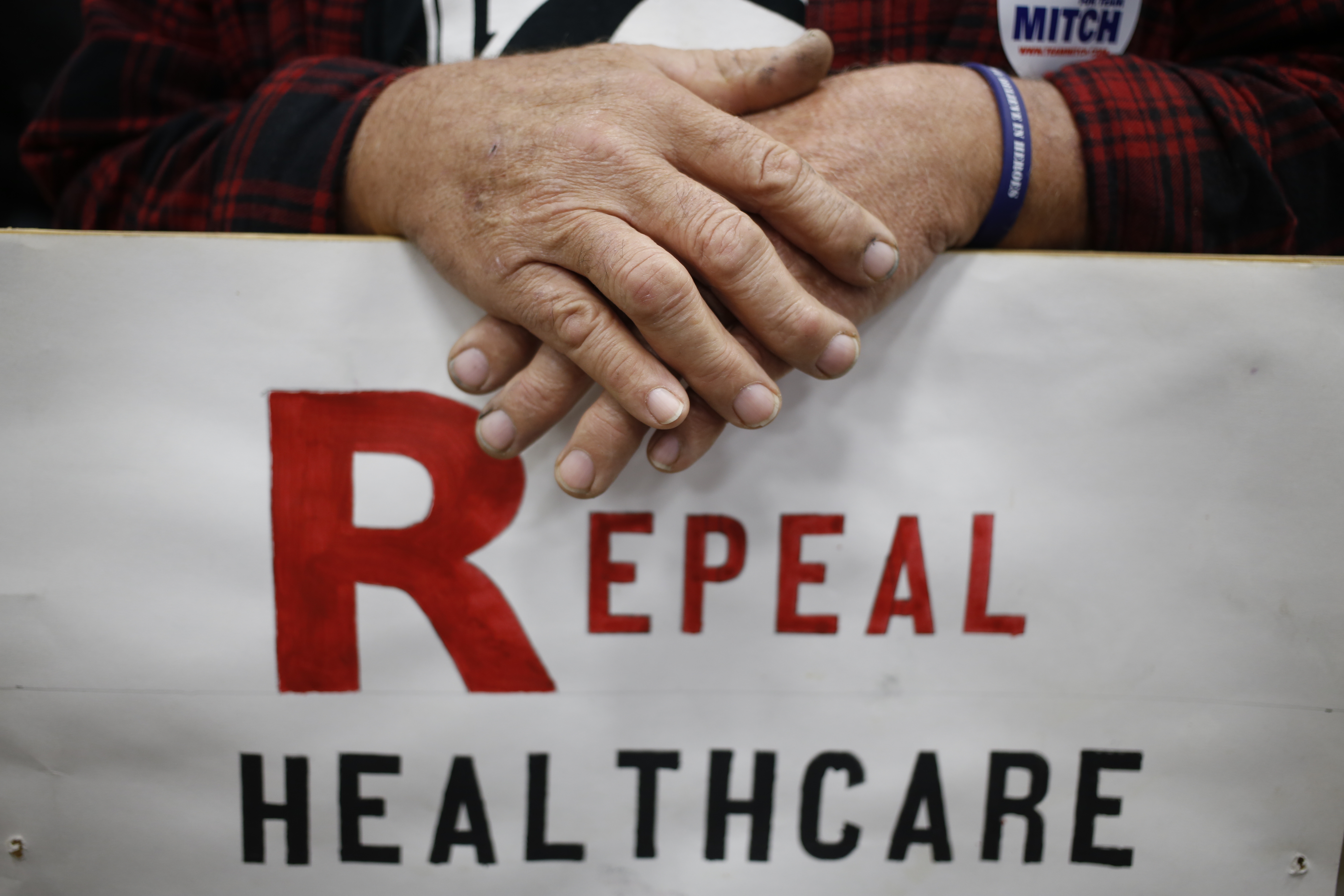Republicans are still campaigning on repealing ObamaCare after 2016


A free daily email with the biggest news stories of the day – and the best features from TheWeek.com
You are now subscribed
Your newsletter sign-up was successful
Republican lawmakers have been promising to repeal the Affordable Care Act since before it was signed into law in 2010, despite President Obama winning reelection in 2012 and the conservative Supreme Court ruling twice in the law's favor against conservative challenges. After the second of those high-court affirmations on Thursday, Republicans are still vowing to repeal and replace ObamaCare, though not until after the next election.
"We'll continue to pick away at the law," said Sen. John Barrasso (R-Wyo.). "But ultimately our goal is to repeal and replace, and that's not going to be possible until after the 2016 elections." Barrasso had been working on a plan to advance GOP goals if the Supreme Court had ruled against the law's federal health insurance subsidies. "It's going to be one of the most important, if not the most important, debating points for 2016," added Rep. John Fleming (R-La.). RNC chairman Reince Priebus added: "Today's ruling makes it clear that if we want to fix our broken healthcare system, then we will need to elect a Republican president."
Not all Republican officeholders are publicly advocating for continuing the quest to bring down the law, and the GOP can't decide on what they would propose to replace it with. But The Associated Press suggests one reason Republicans, especially those running for president, are still calling to repeal ObamaCare: The law is still wildly unpopular among Republicans. According to an April poll from AP-GfK, 71 percent of Republicans oppose ObamaCare. But the same poll also suggests the limits of the GOP's repeal call: Only 33 percent of independents and 14 percent of Democrats oppose ObamaCare.
The Week
Escape your echo chamber. Get the facts behind the news, plus analysis from multiple perspectives.

Sign up for The Week's Free Newsletters
From our morning news briefing to a weekly Good News Newsletter, get the best of The Week delivered directly to your inbox.
From our morning news briefing to a weekly Good News Newsletter, get the best of The Week delivered directly to your inbox.
A free daily email with the biggest news stories of the day – and the best features from TheWeek.com
Peter has worked as a news and culture writer and editor at The Week since the site's launch in 2008. He covers politics, world affairs, religion and cultural currents. His journalism career began as a copy editor at a financial newswire and has included editorial positions at The New York Times Magazine, Facts on File, and Oregon State University.
-
 Political cartoons for February 16
Political cartoons for February 16Cartoons Monday’s political cartoons include President's Day, a valentine from the Epstein files, and more
-
 Regent Hong Kong: a tranquil haven with a prime waterfront spot
Regent Hong Kong: a tranquil haven with a prime waterfront spotThe Week Recommends The trendy hotel recently underwent an extensive two-year revamp
-
 The problem with diagnosing profound autism
The problem with diagnosing profound autismThe Explainer Experts are reconsidering the idea of autism as a spectrum, which could impact diagnoses and policy making for the condition
-
 Trump HHS slashes advised child vaccinations
Trump HHS slashes advised child vaccinationsSpeed Read In a widely condemned move, the CDC will now recommend that children get vaccinated against 11 communicable diseases, not 17
-
 FDA OKs generic abortion pill, riling the right
FDA OKs generic abortion pill, riling the rightSpeed Read The drug in question is a generic version of mifepristone, used to carry out two-thirds of US abortions
-
 RFK Jr. vaccine panel advises restricting MMRV shot
RFK Jr. vaccine panel advises restricting MMRV shotSpeed Read The committee voted to restrict access to a childhood vaccine against chickenpox
-
 Texas declares end to measles outbreak
Texas declares end to measles outbreakSpeed Read The vaccine-preventable disease is still spreading in neighboring states, Mexico and Canada
-
 RFK Jr. shuts down mRNA vaccine funding at agency
RFK Jr. shuts down mRNA vaccine funding at agencySpeed Read The decision canceled or modified 22 projects, primarily for work on vaccines and therapeutics for respiratory viruses
-
 Measles cases surge to 33-year high
Measles cases surge to 33-year highSpeed Read The infection was declared eliminated from the US in 2000 but has seen a resurgence amid vaccine hesitancy
-
 Kennedy's vaccine panel signals skepticism, change
Kennedy's vaccine panel signals skepticism, changeSpeed Read RFK Jr.'s new vaccine advisory board intends to make changes to the decades-old US immunization system
-
 Kennedy ousts entire CDC vaccine advisory panel
Kennedy ousts entire CDC vaccine advisory panelspeed read Health Secretary RFK Jr. is a longtime anti-vaccine activist who has criticized the panel of experts
